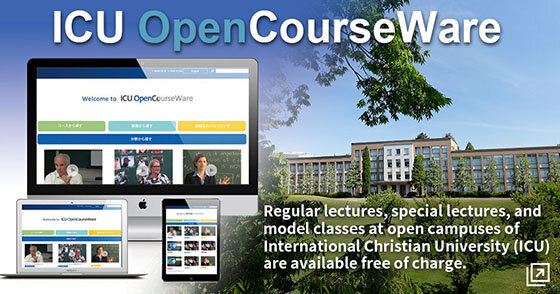Philosophy and Religion
Introduction to the Major
Faculty members talk about what you can learn and what makes this major special.
Mission Statement
The aim of this major in Liberal Arts education is not necessarily to educate specialists. It is to critically scrutinize principles associated with notions such as "meaning" and "value" that we as humans all possess, in order to cultivate the ability to develop ideas from a reliable foundation. The study of philosophy and religion invokes fundamental questions concerning humanity and life and constitutes the core of a Liberal Arts education that aims to cultivate reverent and independent individuals.
Students majoring in Philosophy and Religion will learn to question premises and perspectives that they take for granted. They will also learn how to understand the ideas and beliefs of others with standpoints that differ from their own. By asking questions such as "What can I know?", "What should I do?" and "What can I hope for?", students can inquire into the ultimate people possibilities and limits, and can learn the approaches to the classic, yet modern problem of "knowing oneself."
Learning Goals
Learning goals for students majoring in Philosophy and Religion are as follows.
- Gain an understanding of philosophy and religion as one of fundamental people activities as well as indispensable foundations of such activities.
- Learn the fundamental concepts of philosophy and religion, and the methodologies to academically configure such complex subject matter of these fields.
- Acquire a perspective that respects and understands people who have differing philosophies and religions. Students must select one or more specialized areas from Western philosophy, ethics, Chinese philosophy/ethics, Old Testament studies, New Testament studies, theology, philosophy of religion or religious studies. They take introductory courses, then advance into research and advanced reading courses, as well as seminars, then participate in special research classes. In their final year, they must write their senior theses under the guidance of their respective academic supervisors. In addition, skills of reading comprehension in such languages as Hebrew, Greek, Latin, English, German, French and Chinese are considered highly important to the research process.
Major Faculty
Explore our Classes Online
Visit the ICU OpenCourseWare site to explore and experience our courses online.

